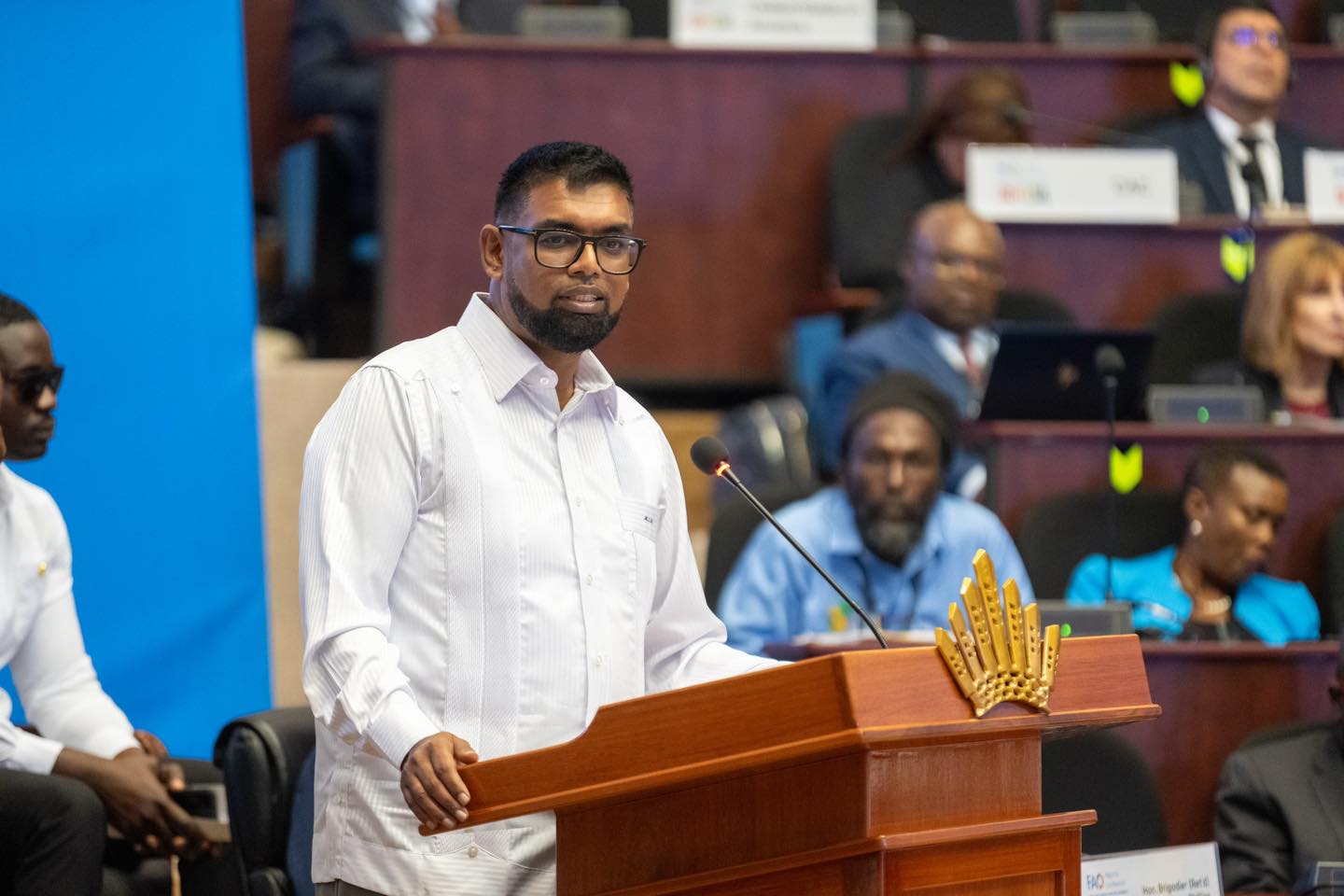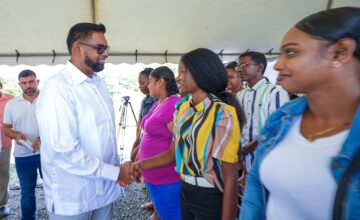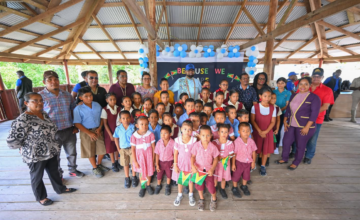
— says women and youths involvement in food production systems pivotal to its growth
Georgetown, Guyana—(March 19, 2024) His Excellency Dr Irfaan Ali said that the Caribbean Community’s (CARICOM) goal of reducing its food import bill by 25% by 2025 and significantly increasing its food security is currently at 70% completion.
The Head of State and current Chair of CARICOM made the statement while delivering feature remarks at the opening ceremony of the Food and Agriculture (FAO) for Latin America and the Caribbean Ministerial Session at the Arthur Chung Conference Centre on Monday.
During his presentation, President Ali underscored that Guyana and the Caribbean have been making significant strides in improving its food production systems at all levels in a bid to increase food security for its citizens.
“Now in the region, we have set ourselves a goal of achieving a reduction of import by 25% by 2025. A recent review, in February of 2024, puts our progress at close to 70% of our objective since starting the initiative three years ago.”
This progress, the President explained, is a result of great political will and leadership from CARICOM.
In Guyana alone, the budgetary allocation to the agriculture sector has increased from $13.3bn in 2019 to $32.2bn in 2023, which represents an increase of 150%.
The Head of State also pointed out that Guyana is working to establish the region’s first state-of-the-art food hub estimated at a cost of US$14m in its first phase, and will expend more than US$30m to establish a link with northern Brazil.
“So we are looking at integrating this regional food hub with Brazil that will look at the issue of transport and logistics, storage costs, but more importantly, building out an infrastructure that would aid the development of the food system in the rest of the region.”
Other projects in CARICOM to improve its food production systems also include working along with Cuba to build out an ecosystem in the biopharma industry; Guyana working along with the FAO and the Inter-American Institute for Cooperation on Agriculture (IICA) to invest in a Centre of Excellence equipped with state-of-the-art data analytics platform; converting the Guyana School of Agriculture into a regional and international institution with support from IICA, among others.
Importance of women and youths
During the presentation, the President underscored that getting women and young people more involved in the food production system is pivotal to its growth and expansion.
He explained that Guyana has been leading on this front, and pointed out that the country has set a target that 35% of all new farms must be owned by women and young people.
As a result of this, and the other investments in the country’s agriculture and food production systems, the President said, the agriculture, forestry and fishing sectors have expanded by an estimated 7% in 2023.
“The fishing industry saw a growth of 37.8% with shrimp production expanded by 61.1%. Aquaculture production expanded by 75% in 2023.
Those are the results of the investments we are making in the food ecosystem here in Guyana.”
Resolving the food crisis
As global conflicts and climate change issues persist, the President urged the conference to focus on developing a global food system that is equitable, fair, and just.
“One in which plenty is transformed into equal; because whilst we have grave starvation and hunger across the world, we still have great waste, plentiful waste across the world.”
To bring balance and equilibrium to the system, the President underscored that a number of thematic areas must be considered including the use of technology, the increased involvement of women and youths in agriculture; the development of a secure production system; the development of data-driven systems; and having the political will to change the systems.
“Many of us say we want to end hunger and starvation and malnutrition, but if you look at our budgetary allocation, it does not reflect that will. If we look at the expenditure profile, it does not reflect that will. Political will is not only shouting out the message, it is about taking policy action and making policy intervention that addresses the issue. So political will is about making the necessary adjustments and changes in your own local systems to support what is one message we were putting forward.”
The Head of State also posited that financing and insurance; the issue of greater integration at regional levels and other aspects of the food production system such as storage must be considered.
“These are things that we must address and these are the issues that I think of when we look at greater integration, transport and logistics but important to what we’re doing is how do we ensure that the next generation just don’t eat but eat food with greater nutritional value? How do we go back to the bowl and avoid the box?”


